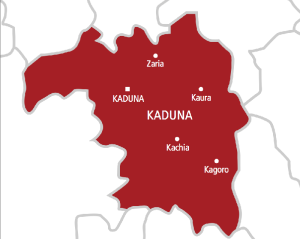
Black market dollar to naira exchange rate today 11th April 2025
The exchange rate for a dollar to naira at Lagos Parallel Market (Black Market) players buy a dollar for ₦1570 and sell at ₦1600 on Wednesday 9th April, 2025, according to sources at Bureau De Change (BDC).
Read More
Comment
0

Those who change religion deserve to die – Islamic cleric defends controversial Hadith
An Islamic cleric and the National Chairman of the Council of Ulama, Dr. Ibrahim Jalingo, has endorsed death penalty for religious faithful who renounce their religion.
Read More
Comment
0

Black Market Dollar to Naira exchange rate today 11th April 2025
The exchange rate for a dollar to naira at Lagos Parallel Market (Black Market) players buy a dollar for ₦1570 and sell at ₦1600 on Wednesday 9th April, 2025, according to sources at Bureau De Change (BDC).
Read More
Comment
0

Kidnappers free Kaduna pastor, detain church official after delivering ransom
Kidnappers who abducted Pastor Samson Ndah Ali of the Evangelical Church Winning All (ECWA), Mararaba Aboro, in Sanga Local Government Area of Kaduna State, have released him but detained the church’s financial secretary, Yusuf Shehu Ambi, who...
Read More
Comment
0

NBA relocates 2025 conference from Port Harcourt to Enugu over emergency rule in Rivers
The Nigerian Bar Association (NBA) has announced the relocation of its 2025 Annual General Conference (AGC) from Port Harcourt, Rivers State, to Enugu, citing serious concerns over what it described as unconstitutional governance and a breakdown of...
Read More
Comment
0

Portable pulls out of boxing match, calls for ₦100m fight with Anthony Joshua
“I’m not fighting Speed Darlington again; I want Anthony Joshua with 100m,” Portable declared.
Read More
Comment
0

Trump targets ex-officials who opposed him during his first term, orders investigations
Trump, repeating unfounded claims of election fraud, warned, “We’ll find out whether or not it was a safe election... he’s got a big price to pay.”
Read More
Comment
0

PMAN slams NBC over ban on Eedris Abdulkareem’s protest song
“The first major mistake is banning the song because it’s going to make the song even go viral right now,” he told The PUNCH. “The song has practically pinched the government somewhere.”
Read More
Comment
0

Petrol prices may drop as Dangote Refinery resumes naira sales at N865
“We are relieved, although it’s a mixed one… Some of us who bought and haven’t exhausted our stock are now selling at a loss—it’s a huge loss,” said IPMAN’s Chinedu Ukadike.
Read More
Comment
0

NASA’s offering $3 million to anyone who can invent a way to “recycle” 96 bags of poop astronauts left on the moon
NASA is seeking creative solutions to "recycle" or repurpose the dozens of bags of human waste left on the moon during the Apollo missions
Read More
Comment
0